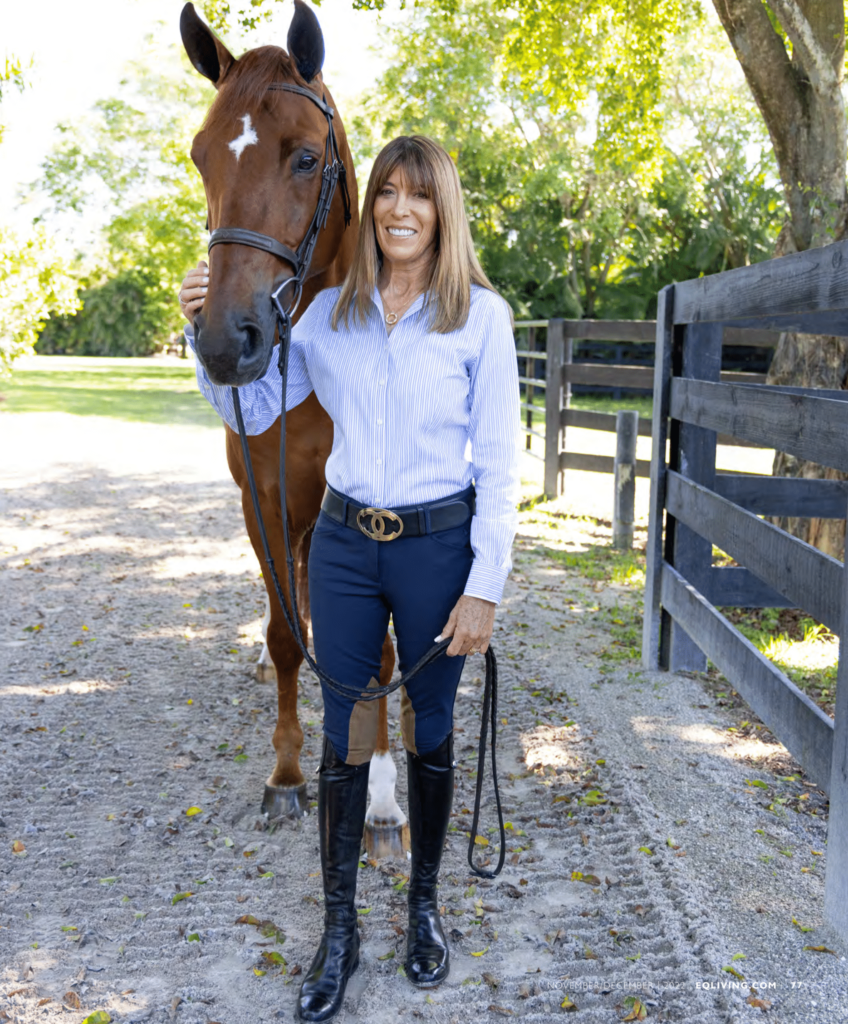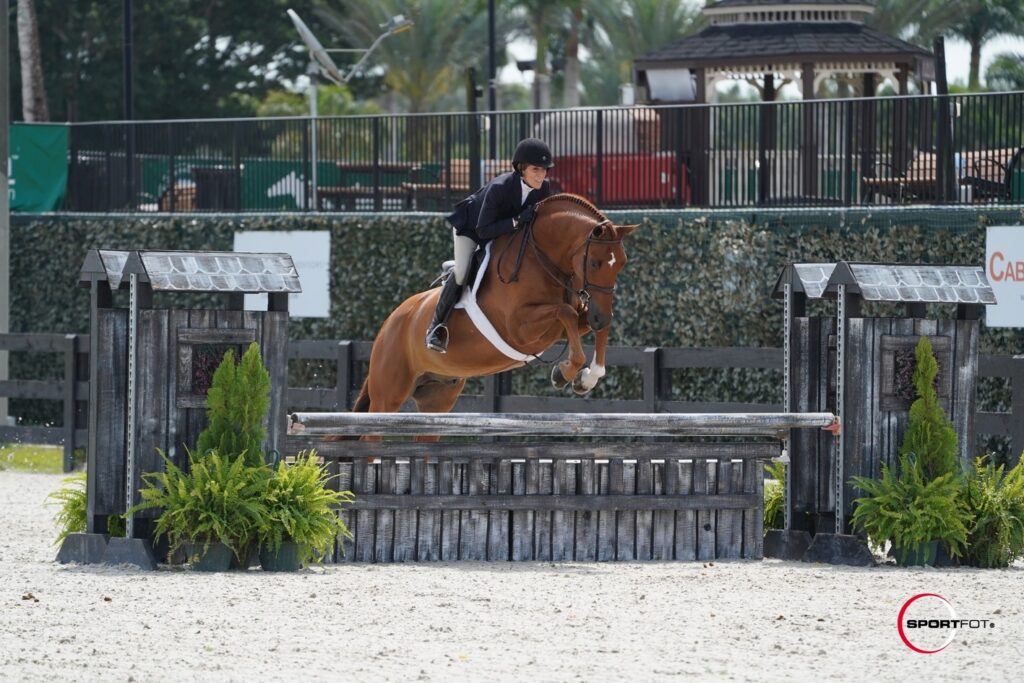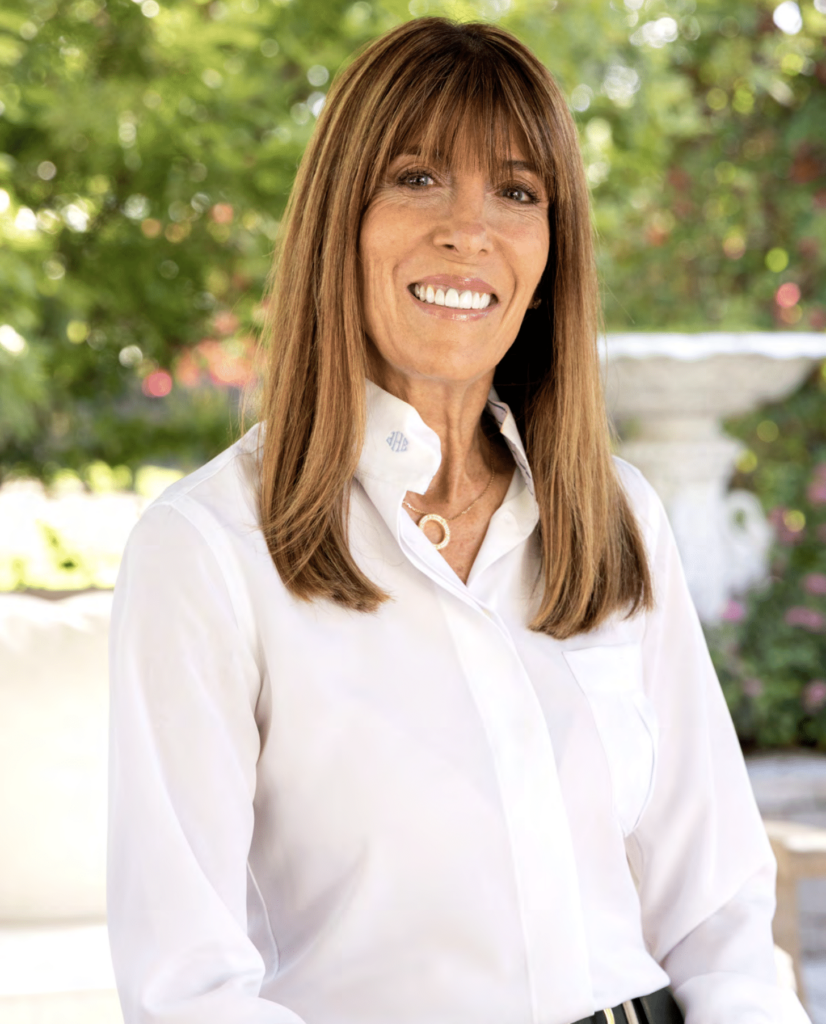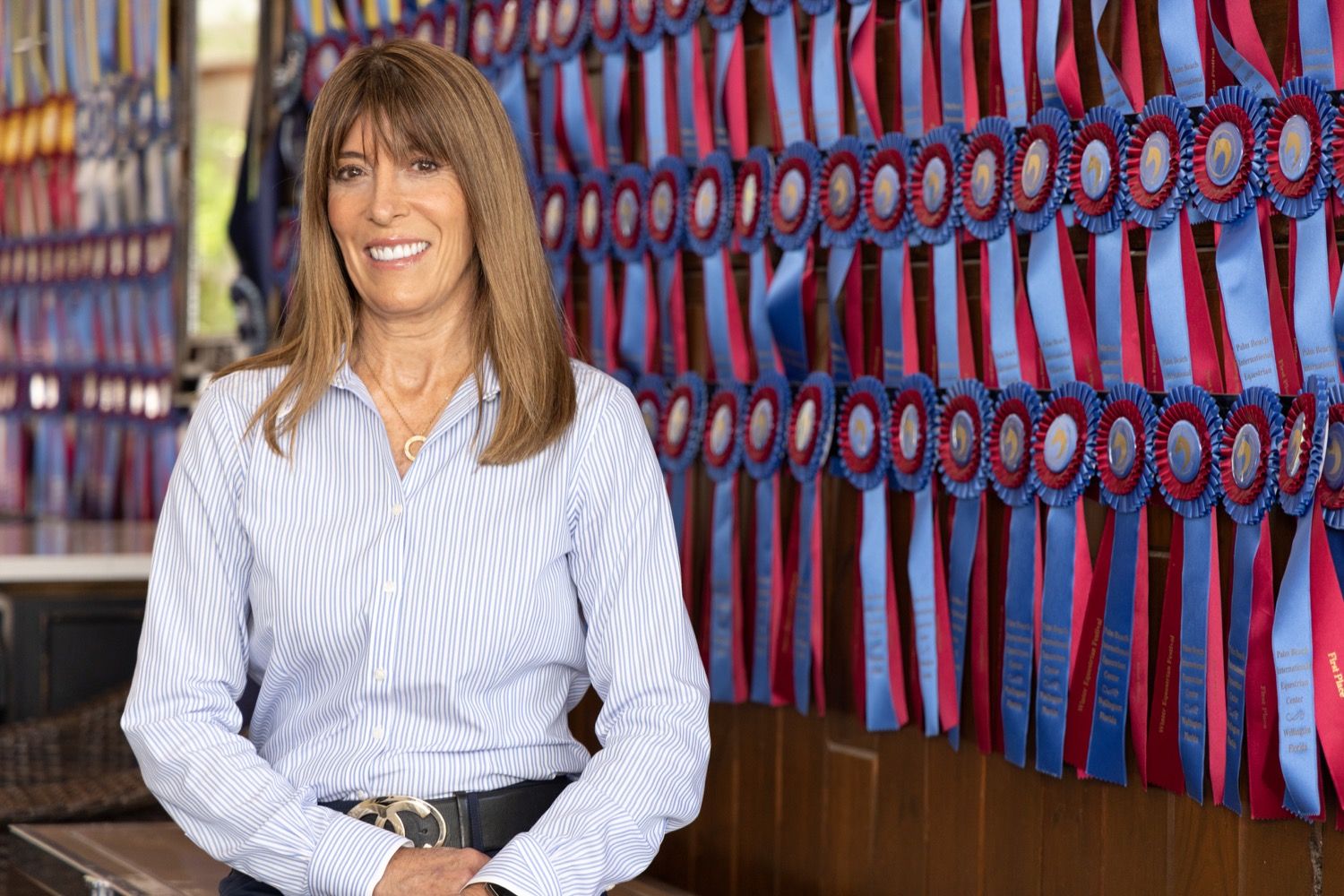PHOTOS BY George Kamper
There is no doubt that balancing academics, career, family, and competitive riding is difficult.Many riders find there is a time when career and family life have to take priority over horse shows. However, this often leaves a void and an unfulfilled passion. Such was Julie Holzberger’s reality, but she has been lucky enough to find her way back to the horse-show world after a 25-year break from horses, and she has made quite the comeback.
Julie was born into a family that loved horses and enjoyed fox hunting in Ohio. Her father even shoed his own horses. Julie got her first horse at6years old and has fond memories of time spent at a nearby lake with three or four children riding the horse at one time.Originally, Julie was not a competitive rider, and her family kept the horses at their home with everyone pitching in on the daily barn chores. When it became clear that Julie wanted to elevate her riding, her parents allowed her to move her horse to a boarding barn to take lessons and start competing. Her riding evolved into competing in the pony hunters and then the junior hunters’ divisions. However, she always had to prepare her horses and participate in the barn work. “It was never a free ride,” Julie remarks. She remembers being at shows at4a.m., braiding her ponies and getting them ready before a show. She adds, “I attribute my discipline in anything to my upbringing.”
Following high school, Julie continued her education at Miami University of Ohio. She found she wasn’t interested in the riding opportunities there, which initiated a long break from riding. She concentrated on her schooling and, upon graduating, focused on furthering her career. Julie’s career is impressive and shows perseverance, dedication, and innovative thinking. She and her husband, Frederic, opened 11 Aveda retail stores and are co-founders of the Aveda Fredric’s Institute, an industry-leading educational program for cosmetologists, estheticians, and wellness professionals.Together, they created a revolutionary place for aspiring professionals to learn a trade and further their skills.
Julie and Frederic are also passionate about philanthropy and giving back to their communities. They have numerous outlets for the betterment of others, starting back at the grassroots level of their Aveda Institutes.Project Daymaker, a mobile salon created in a Winnebago, staffed by salon volunteers traveled to various locations to provide complimentary styling services to women, men, and children in need. Additionally, Julie and Frederic have made impactful donations to Ohio-based healthcare facilities. At the Christ Hospital, the Julie and Frederic Holzberger Cardiovascular Nursing Excellence Fund has provided the hospital with the ability to recruit, train, and retain the highest quality cardiovascular nurses for their program. The Julie and Frederic Holzberger Nursery at UC West Chester Hospital gives back to women, who make up the majority of the work-force in the salon and spa industry. Julie also has been involved in Ohio therapeutic riding chapters and numerous animal res-cue groups, including Brooke USA.

So, after 25 years of dedicating her life to her work and family, what brought Julie back to her childhood passion of horseback riding? One day, Julie was browsing through an equestrian magazine that had arrived, and she remembers see-ing a beautiful picture of a horse and staring at it. “I took the magazine, and I kissed it. I kissed the horse in the magazine,” Julie laughs. She says that her husband saw her kiss the horse and told her that she needed something other than work in her life. At that moment, all her feelings about riding horses came rushing back.
Her initial plan was to simply trail ride and have her husband, who had never ridden before, join her as something they could enjoy together outside of work. To her surprise, her husband bought her a 5-year-old horse named Dani, a beautiful gray Quarter Horse. Her husband chose not to continue riding; however, Julie was introduced to trainers David Belford and Christopher Payne of New Hope Farm, who had just moved to Cincinnati, Ohio, and were renting a farm to start their training business. Julie was their first client 18 years ago, and she continues to train with them today.
Still, her picture of riding was to trail ride for fun, but after meeting Chris and Dave, the next thing Julie knew, she was in Wellington, Florida. She leased a horse during her first season there just to get into the show ring. Ultimately, they found a horse for her to buy named Pure Giving. The new pair stepped right into the adult hunters with great success. Julie had refound her passion.
When asked what she attributes her success to, Julie says it’s her training. “My initial training. It all starts at the grassroots. I had such a great foundation, and it all begins with your baseline education.” Julie feels that she was able to go back to the equestrian sport after 25 years out of the saddle because of her strong beginnings. After nine years of competing with Pure Giving and achieving numerous championships, including Capital Challenge AdultAmateur Hunter Champion andNorth American League Adult HunterFinal, Julie decided to retire him. She thought she had accomplished all she needed to and would be fine on the sidelines of the ring. But then her trainer, Dave, sent along a video of an amazing chestnut Westphalian. Despite trying to convince herself she did not need this horse, coming up with all the negative “what ifs” like if he is not comfortable or can’t see a distance, her trainer said to her, “But what if he is?” And the rest was history; Imagine, the Westphalian, came over from Europe and was the next addition to Julie’s family. Julie and Imagine went on to be circuit champions in the Adult Amateur Hunters two years in a row at WEF.

Julie’s confidence and trust in her trainers at New HopeFarm let her know that she will be safe when she gets on her horse and that her horses are being cared for and meticulously monitored. “It is a team approach, and communication is key for all members,” Julie says.

When asked how she balances it all, Julie explains, “I compartmentalize all pieces of life.” Riding is the part of her life that helps her to decompress and feel replenished. “I boil it down to communication and putting a timeline on my days at the barn, my work obligations, my family, and my social functions,”she says. She loves her nightly to-do lists that aid in organizing and structuring life. Julie has tremendous support from her husband, who encourages her to ride even when she feels like she doesn’t have time to get to the barn. “You can’t wait for things to be easy to decide to be happy,” he tells her. When competing, Julie adheres to a strict regimen. She walks or runs five times a week, gets massages, goes to sleep early, eats healthily, and even has particular systems at the ring that make her feel competition-ready.
Julie advises being open-minded to the evolution of what riding may look like after a long break and starting small. She recommends being a driver of the direction you want your riding to go, but to be flexible and let the plan unfold. “Being realistic about the time you have to commit to riding and doing the research to find the right training program is paramount,”she explains. Julie never thought she would be where she is today, but she says structure, focus, and hard work played into getting her here.
Read the entire November/December Issue.

